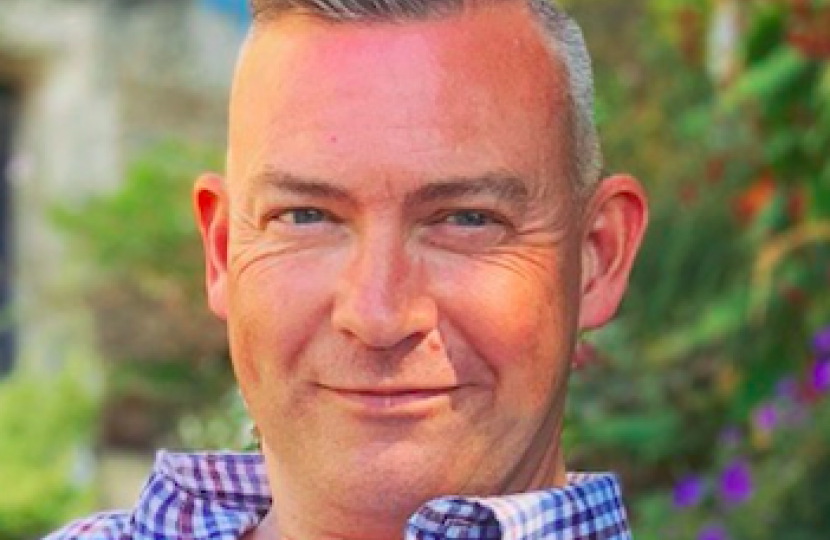
Steve Mastin is an education consultant. He has advised the Department of Education about the history curriculum, and is Vice President of The Conservative Education Society.
For the first time in our history, schools were open to children on Good Friday and Easter Monday. The current pressures facing every school are very different from the usual pressures. In normal times, schools would now have started the exam term.
When Priti Patel fronted her first Covid-19 briefing, I hoped she wouldn’t smirk. It’s not her fault, but she does have an unfortunate habit of appearing smug. Andrew Marr once wrongly accused her of laughing. I think it is more of an unconscious mannerism that isn’t intended to denote indifference. Fortunately, Priti came across as serious and well-briefed.
However, I am struggling to make the same defence of Labour’s new Shadow Education Secretary. It’s not that she smirks accidentally; but posting an emoji in your first tweet is deliberate, not unconscious.
With schools facing many questions about supplying work for pupils during the lockdown, exam classes, and planning for re-opening, one would have thought that Rebecca Long-Bailey’s first public announcement would have been one of solidarity. Instead, Labour’s top education spokesman decided to post a tweet that read, “Some initial questions to Gavin Williamson: re urgent coronavirus support. Should keep him busy for a few days.” …followed by a winky emoji. That’s right, winky! I would have thought that asking serious questions is the role of the Shadow Education Secretary. But Becky decided to add a cheeky little wink. Why?
Long-Bailey then tweeted:
“Never has there been a more important time to fight for a public education service, free at the point of use, so that all our aspirations can be realised.”
Sorry. Did I miss something? As a member of the Conservative Party and a state-school teacher, I was clearly not sent the email from the Education Secretary that clamoured for a privately funded service, fee-paying schools, with low expectations and aspirations. But Long-Bailey is a part of that Corbyn brigade where virtue signalling is more important than facts.
Does she appreciate that the Education Secretary is wrestling with incredibly big questions that affect hundreds of thousands of people? Does she recognise that schools – by and large – are contributing to the decisions he has made? Let’s take just two of the biggest: exams and re-opening schools.
Thousands of children were expecting to sit exams. Psychologically they had prepared for them, teachers were working hard to cover the necessary content and keeping pupils confident. SATs in primary schools, GCSE exams for Year 11, and A-Levels for Year 13. And then schools closed for the foreseeable future. The Education Secretary was exceptionally clear and reassuring. All exams would be cancelled. The big question schools asked was, ‘so how will our pupils be assessed?’ I dreaded mock exams being used to determine grades. It was not uncommon for some of my pupils to underperform in mocks; not a bad thing as it teaches them to prepare harder for the real ones. Often, pupils underperform on certain types of questions and learn from mistakes. Teachers were understandably relieved when Gavin Williamson announced that teacher judgement would inform grades. Exam boards accepted this, as did Ofsted.
Then there arose the question of those pupils (Years 10 and 12) who would be sitting their exams in 2021 but have missed, potentially, a term’s worth of the syllabus. Exam boards announced, supported by the DfE, that they would prepare those exams with this in mind and teachers and pupils would know which sections of the exam to complete. Everyone is in this together.
The much bigger challenge right now is all those empty classrooms.
Schools will re-open. But let’s be clear. When the schools gate open, the place will not look anything like it used to: 30 children sitting at desks in a classroom, passing each other in the corridor, sitting on the grass having lunch, music clubs at lunchtime, a kick about on the field.
This requires very long-term planning. For three reasons.
Some teachers and pupils will have vulnerable relatives at home. Going from home to school every day needs to be safe. Covid-19 is still a risk for many people. Teachers who have worked with coughing and spluttering children for years might be immune to all sorts of grotty things. But in these strange days, we read everything into a cough.
Secondly, if social distancing is still in force for the rest of the country, then it is impossible in a school full of children. Lesson change-over, small classrooms, dining halls. Schools could stagger break times but they cannot stop children from interacting with each other every minute of the day. And consider that these children will not have seen their friends for over a month. They will do what children do. The very suggestion of schools enforcing social distancing is patently ridiculous. I’m all for strict discipline, but someone who would suggest this has clearly never met a child.
Thirdly, for schools to re-open, it requires the support and consensus of parents and teachers. Simply announcing a date in June will not work. Would you send your children back?
The prolonged closure of schools will cause real damage to so many children. And it will be the most disadvantaged who will suffer the most. I suggest that those in Early Years should be the first to return. Falling behind in learning to read and write is unthinkable; missing out on the Wars of the Roses in Year 8, less so.
Schools are doing their best to provide education to pupils and support to parents in challenging circumstances. Schools will not look like they used to for many months to come.
So, Becky, please don’t wink or smirk. Support. Advise. Show you take the job seriously.
Originally published on Conservative Home.

